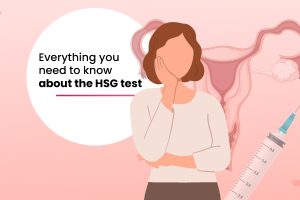All you wanted to know about Endometriosis

All you wanted to know about Endometriosis:
Many women have problems related to their periods. But they are unaware that irregular periods, heavy bleeding, or severe pain may lead to infertility. Endometriosis is one such condition that can go undetected but may affect a women’s fertility to a great extent. Let’s get to know in detail about endometriosis.
What is Endometriosis:
To know about endometriosis, first, let us learn about the menstrual cycle. And women need to have a clear understanding of the menstrual cycle. The inner lining of the uterus is called the endometrium which makes itself ready to embrace the fertilized egg every month. But if there is no pregnancy, the endometrial tissue is shed every month during the menstrual cycle as a result of which bleeding occurs. When endometrium grows anywhere outside the uterus namely the fallopian tube, ovary, vagina, etc. it’s called endometriosis. This tissue is also shed but the blood has no place to go causing inflammation resulting in scar tissue and lesions.
What are the symptoms of endometriosis?
- Chronic pelvic pain/ low back pain
- Painful periods (Dysmenorrhea)
- Difficulty in conceiving (Infertility)
- Pain during sexual intercourse (Dyspareunia)
- Excessive bleeding during periods
- Painful cyclical hematuria/ painful defecation (Dyschezia)
Diagnosis of Endometriosis:
- Ultrasound
- Rarely MRI scan may be required to identify deep-seated endometriosis.
- Laparoscopy & Biopsy – Laparoscopy & Biopsy of the endometriotic lesion is the gold standard in the diagnosis of endometriosis. A sample tissue of endometrium is viewed under the microscope (during a laparoscopy) that helps the specialist to confirm if the patient has endometriosis.
Treatment of Endometriosis:
- Requires treatment for infertility as a priority which can be either IUI or IVF based on the patient’s egg reserve.
- If the family is completed then birth control pill, hormone treatment, and surgery can be considered as options to relieve pain/ other symptoms.
Hormone Therapy:
By hormone therapy, ovulation can be prevented which can also slow down the growth of the endometrium.
- Surgery:
Affected tissues can be removed by laparoscopic surgery. In some cases, hysterectomy is done wherein the uterus and ovaries are removed.
Management of endometriosis by lifestyle changes:
Eat Healthy Foods:
Consuming fruits, vegetables, and foods rich in omega-3 fatty acids can reduce the risk of developing endometriosis. Alcohol, caffeine, and trans fat should be avoided.
Exercise:
Regular exercise can help in managing endometriosis. And also, yoga and meditation can help in overcoming stress thereby helping you to cope with endometriosis.
When you have problems with your menstrual cycle, don’t hesitate to consult a fertility specialist. Early diagnosis and treatment can help you in overcoming infertility issues and achieve your parenthood dream.










